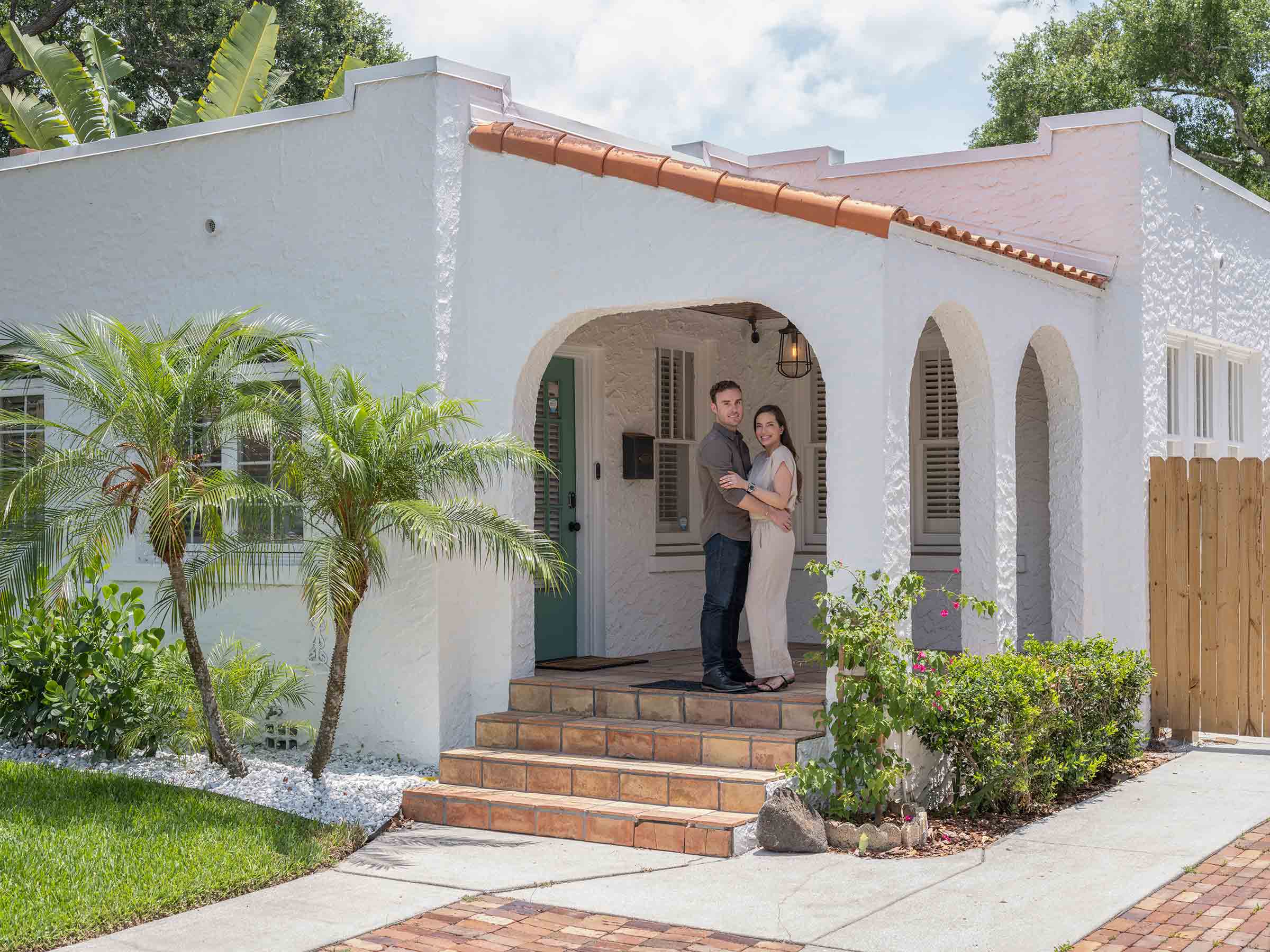
Shopping for a home these days is a miserable slog. The buyers who walk away with a set of keys succeed against long odds, prevailing despite skyrocketing prices and relentless competition. Even as the U.S. housing market shows signs of cooling, buyers are still feeling enormous pressure to move quickly before interest rates rise further, pushing more homes out of reach. At the center of this overheated market is a historic supply shortage. Simply put, there are nowhere near enough houses for all the people who want to buy them.
The shortage could be described as a collapse, according to Jonathan Miller, president of Miller Samuel Real Estate Appraisers and Consultants, who tracks 40 housing markets around the country. Even if inventory tripled in some markets, home buyers would still be scrambling. “This is bordering on anarchy,” he says. “Demand has obliterated supply.”
The seeds of the crunch were planted in spring 2020, when Americans found themselves unshackled from their commutes and collectively decided the time was ripe for a move as they spread out in search of more space. At the same time, existing homeowners opted to stay put, while cash-flush investors snatched up single-family homes at a startling clip. By March 2022, buyers had half as many homes to choose from as they had two years earlier. The homes sold twice as fast and cost 34% more, with buyers twice as likely to pay above list price, according to Redfin.
Yet a bidding war also produces a winner. Often it’s a battered veteran of the pandemic market, couples who honed their negotiating strategies over the course of multiple disappointments, finally finding a house when success seemed hopeless. Along the way, they learned valuable lessons about how to outflank the competition and come away with not another defeat, but a home of their own.
These are the stories of four buyers who prevailed and how they did it.
Find a house before it hits the market
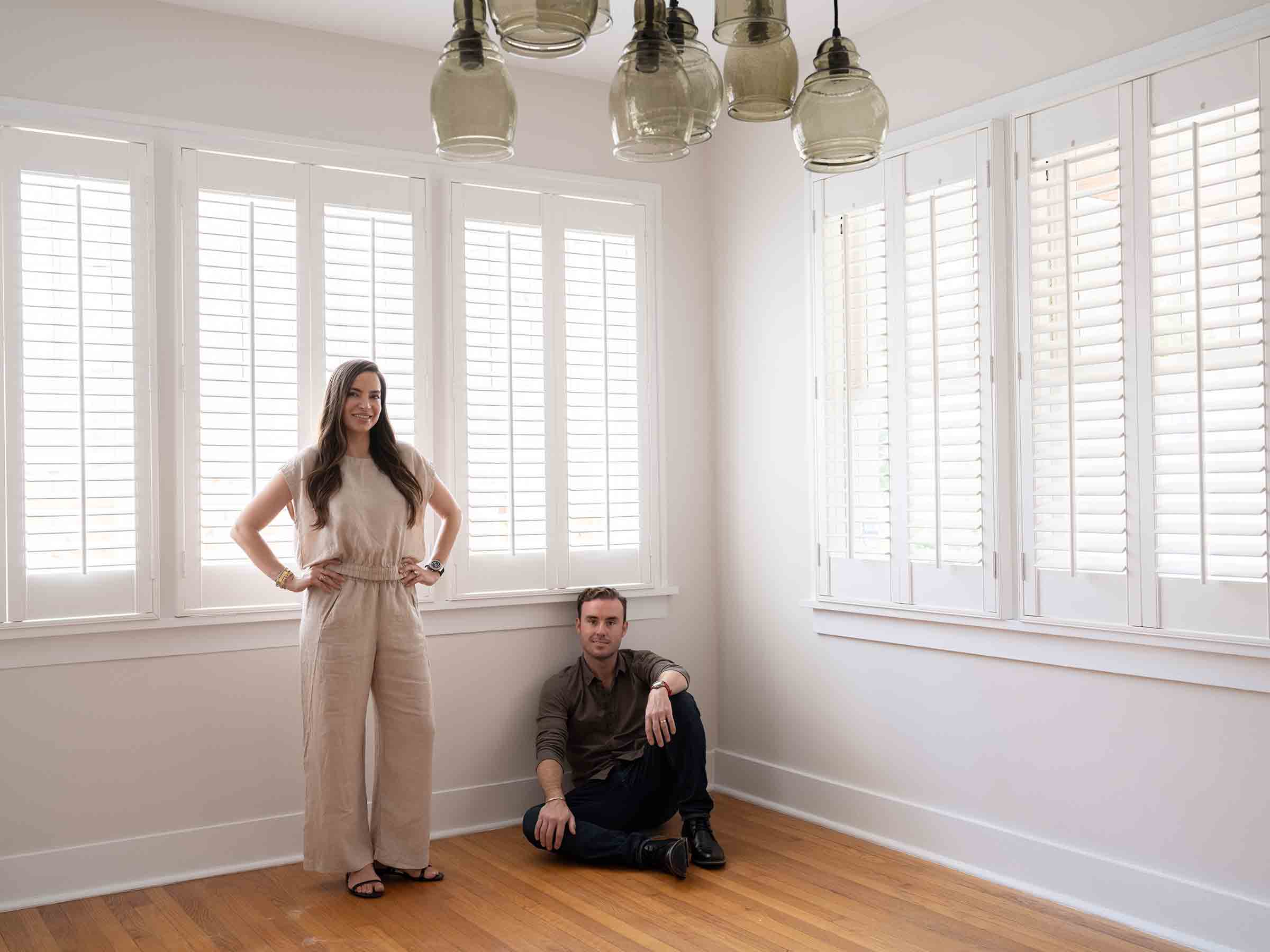
Who they are:
Katie and Tony Mancilla
What they wanted:
A bungalow in Tampa for under $800,000
What they got:
A three-bedroom, two-bath bungalow for $725,000
How they did it:
They swept in and made an offer on a house, sight unseen, before it hit the market. By working with a local broker, they were able to get details and information they would not have gotten on their own. “Bottom line, find someone to trust in the area,” Katie says.
********
Last year, Katie Mancilla was living with her husband Tony Mancilla in Los Angeles, but her heart was in Tampa. “I moved there during a very tough time in my life,” she says of the Florida city where she’d resided in 2014. “It helped me get through a lot.”
But she didn’t want to live just anywhere in Tampa. She wanted to live in Palma Ceia, a coveted neighborhood of homes well over $1 million, but with a pocket of small bungalows, some listed within the couple’s $800,000 budget.
“I love a home with a little bit more character,” Katie, 38, says of the bungalows, many built in the 1920s. She works in digital marketing; Tony, 35, works in health technology.
House hunting in one of the hottest markets in the country is hard. Doing it while living 2,500 miles away is even harder. How do you find a home when all you have to go on are the Zillow pictures?
So they leaned on their real estate agent, Devan Weisser of Century 21 List with Beggins. She became their eyes on the ground, giving them FaceTime tours of properties and making snap decisions on their behalf. “She would walk into some of these properties and say, ‘This just isn’t you,’” Katie says.
In October 2021, the couple flew into Tampa for a weekend, touring half a dozen properties. None was right. Many were new construction that felt sterile and lacked the character Katie craved. Ready to give up on the idea of a single-family home in Tampa, the couple looked at a condo apartment. But it was run-down and felt depressing. They left Tampa dejected and raw. “I was kind of at my wit’s end,” Katie says. “I had mentally backed out.”
But the next day, Weisser spotted another real estate agent’s Instagram Stories teasing a bungalow that she had not listed yet. Located across the street from where Katie once lived, and a block from a park, it was perfect for the Mancillas, Weisser knew. At a private open house exclusively for brokers, Weisser gave the Mancillas a FaceTime tour, urging the couple to make an offer fast. “It was very, very charming,” says Weisser, who had helped Katie find her first home in Tampa back in 2014. “It had an old-school feel about it.”
During the open house, Weisser spotted a photograph of the sellers and realized they were family friends with her husband. Now she had an edge: she knew what made the seller tick.
The property, which would soon be listed for $659,000, had five offers within three hours of the broker’s open house. But Weisser knew that the sellers were a family-oriented couple invested in the historic nature of the community, details she thought would give her clients a leg up. “This is a very special place to me, and I wanted to keep it that way,” Katie says. “A lot of people would have taken that lot and built a $2 million home on it.”
Weisser is convinced that commitment helped put the Mancillas’ $725,000 offer over the top. “How do you stand out in a market?” she says. “We went a step further.”
The sellers accepted. They closed in November.
Make an all-cash offer (without any cash)
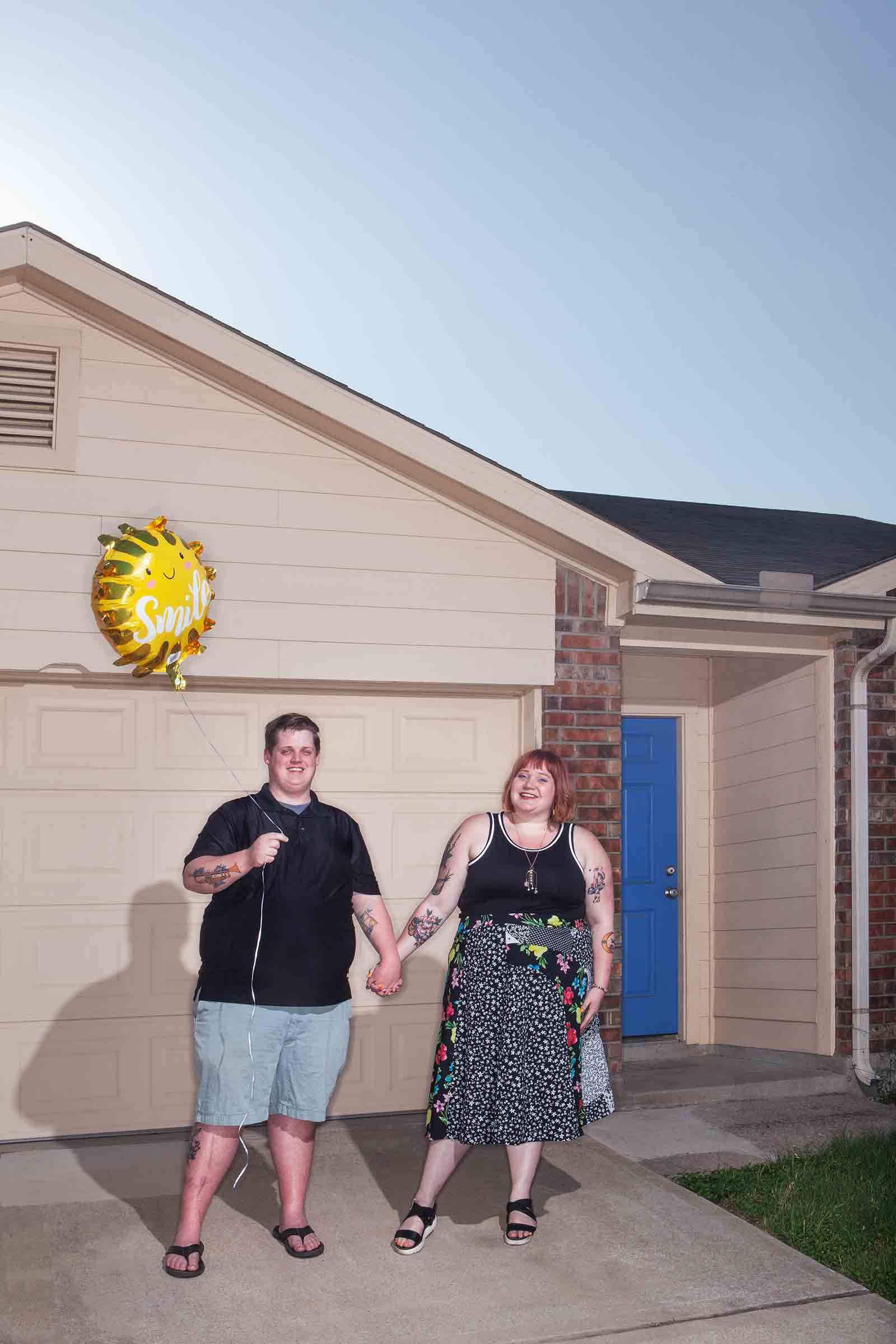
Who they are:
John and Sarah LeNoir
What they wanted:
A house in Austin for $300,000
What they got:
A three-bedroom, two-bath house in Kyle, Texas, for $319,000
How they did it:
With little in savings, they used an online home seller to turn their FHA loan offer into an all-cash one. “We thought it was completely out of reach before we dug deeper,” Sarah says.
********
On Dec. 27, 2021, John LeNoir was celebrating his 31st birthday at home in Austin with his wife Sarah LeNoir. Over a couple of beers and chicken korma, the subject of buying a house came up. Curled up on the sofa, Sarah scrolled through Zillow listings on her phone and started to imagine the impossible.
“It’s been something that I personally did not believe was plausible,” says Sarah, 29, who works in nonprofit management. But that night Sarah saw a crack opening, one that might be large enough to squeeze through. The couple was chipping away at $18,000 in credit-card debt, and they’d had a two-year reprieve from $600 monthly student-loan payments because of the federal pause on them.
Feeling giddy, they logged on to a local credit union’s website and applied for preapproval for a mortgage. A week later they learned that they qualified for a $300,000 home. But $300,000 doesn’t go very far in Austin, where the typical home value was $681,000 in April 2022, according to Zillow.
In late February, a house came on the market in Kyle, about 30 minutes south of Austin. Listed for $280,000, with three bedrooms and two baths, it seemed within reach. But in less than 24 hours on the market, it had multiple offers. They called their credit union and got the green light to raise their borrowing limit.
But to be competitive, they needed to offer more than preapproval on a Federal Housing Administration loan. So they turned to Opendoor, one of a number of startups that help buyers make cash offers. In this case, Opendoor would buy the home and sell it back to the LeNoirs at the same price. To qualify, they had to use a real estate agent affiliated with Opendoor, so the company would get the commission. Even without up-front costs, there were risks. If they backed out after the close, the company would keep their escrow deposit, and it could charge them if they took too long to transfer the property to their name.
But before this could even happen, the couple needed cash to set aside in an escrow account if their offer was accepted. And in February, they had less than $2,000 in the bank. “I got spooked,” Sarah says. “I don’t want to make this offer and then not have the money.”
Cash for the 3.5% down payment required for FHA loans would be coming. John, a supervisor at an insurance call center, was expecting a bonus, and they planned to supplement that with a loan against his 401(k). Home buyers can borrow up to $50,000 or 50% of the balance of their 401(k), whichever is lower, but must pay back the money with interest and cannot contribute to their 401(k) until the debt has been repaid.
But neither sum was in hand. Their agent called the seller’s and explained that the LeNoirs could put only $1,200 in escrow, far less than is typical. The seller’s agent told them to put in an offer anyway. That night, before they’d ever seen their house, they offered $319,000 for it. The next day, they went to see what they’d just bid on. Sarah was smitten by the trapezoidal kitchen and large yard. “We were on pins and needles,” Sarah says.
The next day, their offer was accepted. Opendoor closed on the sale within 30 days. Before the couple’s lease expires this summer, they’ll buy it back at the same price—or they’ll forfeit the $1,200 they put down. For now, they drive by frequently, waiting for the day they can call the little house in Kyle home.
Write a love letter to woo a seller
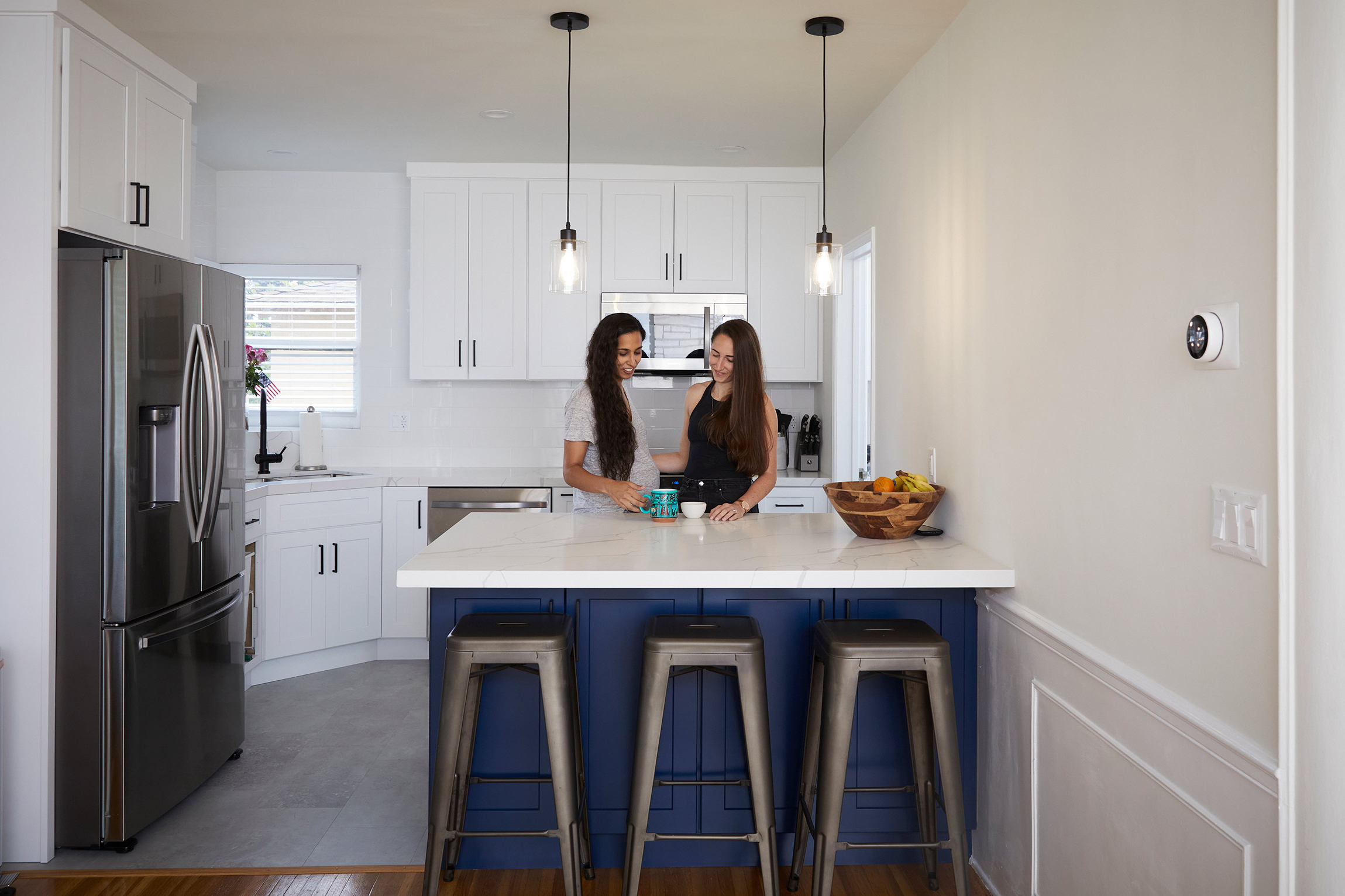
Who they are:
Rauvynne Sangara and Natalia Alvarez
What they wanted:
A three-bedroom house in Los Angeles for around $1 million
What they got:
A three-bedroom house with a den in Pasadena for $1.05 million
How they did it:
Their buyers’ letter convinced the sellers that they would make good neighbors. “Don’t get discouraged,” says Sangara. “There are nice people out there that want to sell their house to good people and not just to the highest bidder.”
********
On a Thursday morning in January 2022, Natalia Alvarez and Rauvynne Sangara saw seven houses and bid on two: a dated single-story stucco house in Pasadena, Calif., and a three-bedroom in Highland Park, Los Angeles. They didn’t think they had much of a shot at the Pasadena house. It was listed for $1 million, the top of their budget, and the couple figured the price would spiral in a bidding war, particularly since it had just hit the market. Besides, they had their heart set on the Highland Park house, which had been on the market for a few months already. They offered $1.08 million, more than $100,000 over the asking price.
“We thought we had a great chance at this home,” says Alvarez, 32, an emergency physician. “We were really excited.”
By then, they had been house hunting for three months, and had lost seven bidding wars. Their roughly $1 million budget didn’t go very far in Los Angeles, where the typical home value is just under $1 million, according to Zillow. They were also up against a deadline: Sangara, an ob-gyn, was pregnant with their first child, due in May, and they wanted to be out of their rental well before then.
A few hours after they made the offers, Sangara, 32, refreshed her Zillow app and saw that the Highland Park listing had changed to “pending.” They knew they hadn’t gotten the house, because their real estate agent had not called them with any news. “We were heartbroken,” Alvarez says. Despondent, the couple went to brunch.
“I had a full rack of ribs and a glass of rosé,” Alvarez says. “How do we move on from this?”
They were back at home that evening licking their wounds when their real estate agent, Jeromy Robert of the Agency, called to confirm that they had indeed lost the Highland Park house. But he had surprising news. Their offer on the stucco house in Pasadena had been accepted. No counteroffer. No conditions. The sellers had simply accepted their offer of $1.05 million.
Alvarez and Sangara were stunned. “We were like, why?” says Alvarez. “How did that happen?”
Their agent said the sellers were struck by the letter the couple had included in their offer. Alvarez and Sangara hardly remembered this letter, written so long ago and included in every offer they’d made. “What was this magical letter that can get us a home?” says Sangara.
Sangara dug up the letter she had written months ago. “We can picture our French bulldog, Jackson, running around the back yard and our first child (due in the spring!) sitting in the front yard saying hi to the neighbors,” it read.
Alvarez could see why it worked: “It just made us sound like very wholesome people.”
The three-bedroom house, set on a quiet street, with views of the San Gabriel Mountains in the distance, needed work. The kitchen was small and outdated with narrow cabinets and no dishwasher. The bathrooms were dated. But once Alvarez and Sangara moved in, they knew they’d landed in the right spot. “I didn’t realize it in the moment,” Alvarez says. “But this was the best home for us.”
Let the sellers stay
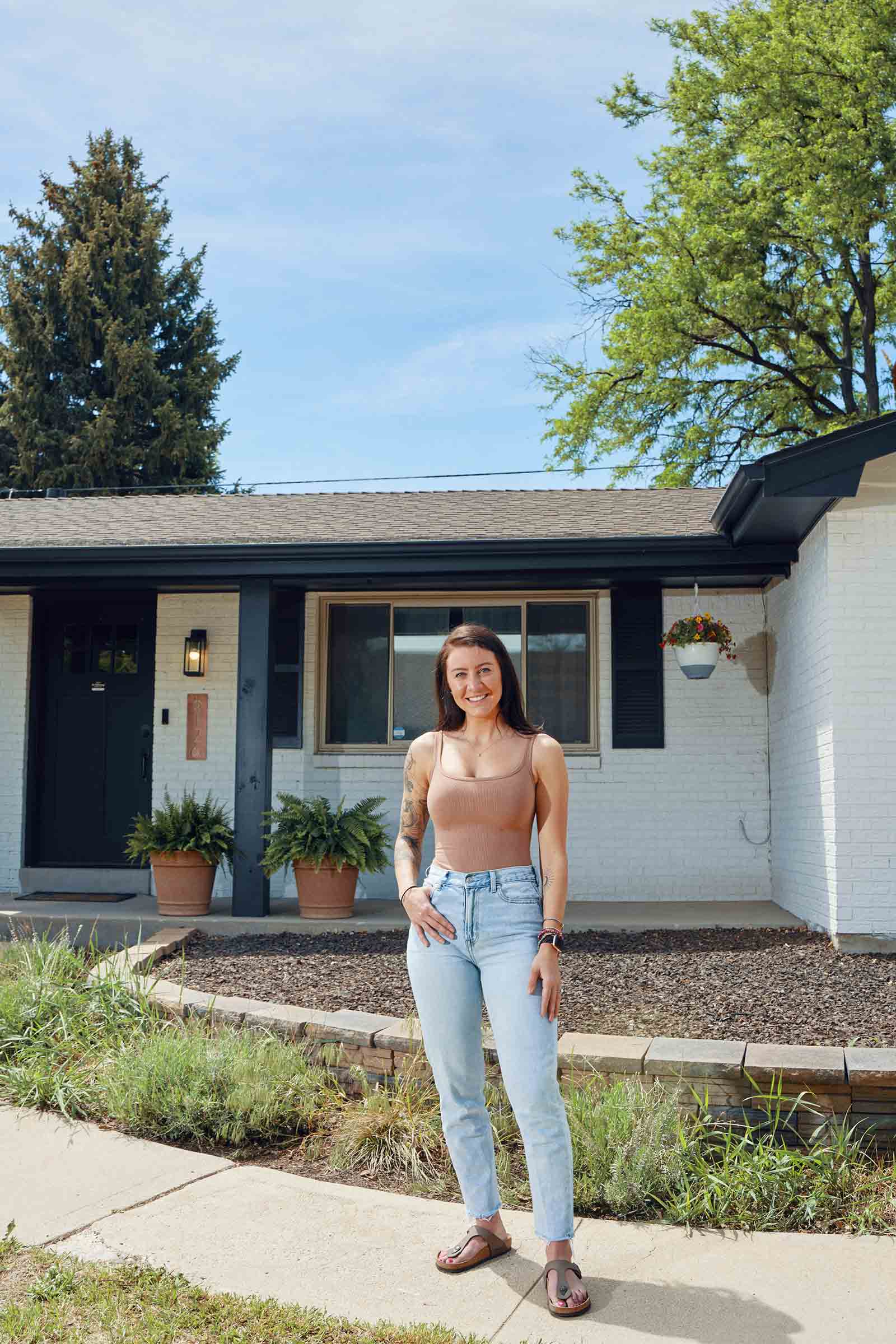
Who they are:
Hillary Horn and Griffin Ashe
What they wanted:
A four-bedroom house for less than $850,000 in the Denver suburbs.
What they got:
A four-bedroom, three-bath house for $762,000 in Arvada, Co.
How they did it:
They found a house that was too quirky for many buyers, but perfect for them, and let the sellers continue to live there rent free for two months. Horn says: “We got our house because we got better at playing the housing game.”
********
By March 2022, Hillary Horn and Griffin Ashe had seen over 100 houses in the Denver metro area, making offers on five of them. But with homes selling for $100,000 or $150,000 over list price, they couldn’t compete and stay within their $850,000 budget.
“The market definitely kicked our butts,” says Horn, 29, who works for a mortgage company. Ashe, 32, works in consulting.
But with each failed attempt, they fine-tuned their strategy in the hopes that eventually they’d strike gold. “There is really nothing that can help you buy a house other than having the most money or having the best terms,” Horn says.
Since they couldn’t offer the most money, they decided they’d offer the best terms.
They qualified for what is known as platinum approval from their lender, an approval where the lender fully underwrites the mortgage before an offer is made, essentially removing the mortgage contingency. They added an escalation clause, so that if anyone bid above their offer, they’d incrementally increase theirs up to a maximum limit. And they gave sellers 24 hours to respond so they wouldn’t lose an entire weekend to a house they had no chance of winning. “We thought if we just kept at it we’d find the one that worked,” Horn says.
For four months, their weekends were filled with open houses, and their days were spent trolling Redfin. And then, they caught a break. One week in March four houses in their price range hit the market. Usually, there would be only one or two. More houses meant less competition. One house, a four-bedroom listed for $749,000, had no offers. “I walked into the house thinking why are there no offers?” Horn recalls. “What’s wrong with it, for real?”
Renovated in 2018, the house was in great condition. And at 2,800 square feet, it was spacious. But two of the four bedrooms could be considered masters, with the larger one on the lower level, separated from the others. Horn suspected that the configuration didn’t appeal to families with small children. But it appealed to her. So she and Ashe made an offer that included all their standard bells and whistles.
But they padded it with one more carrot: They knew the sellers were looking for a house to buy, too. So they offered the sellers the option to continue living in the house for free for up to 60 days after the sale closed.
With only one other offer on the table, theirs was accepted at $13,000 above the list price. “We feel like we stole our house because we didn’t have to bid that high,” Horn says.
Letting the sellers stay after the sale closed hasn’t been easy – Horn and Ashe had to make rent and mortgage payments in May. But Horn says it’s worth it. “It’s the peace of mind that we’re paying for,” Horn says. “We don’t have to be in this process anymore.”
More Must-Reads From TIME
- The 100 Most Influential People of 2024
- Coco Gauff Is Playing for Herself Now
- Scenes From Pro-Palestinian Encampments Across U.S. Universities
- 6 Compliments That Land Every Time
- If You're Dating Right Now , You're Brave: Column
- The AI That Could Heal a Divided Internet
- Fallout Is a Brilliant Model for the Future of Video Game Adaptations
- Want Weekly Recs on What to Watch, Read, and More? Sign Up for Worth Your Time
Contact us at letters@time.com